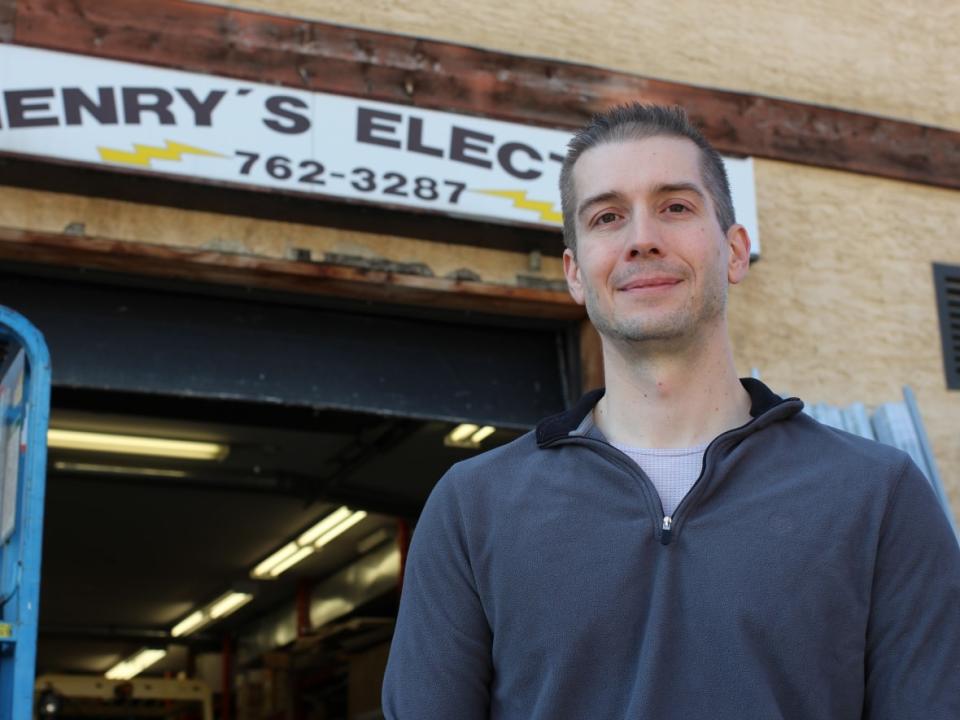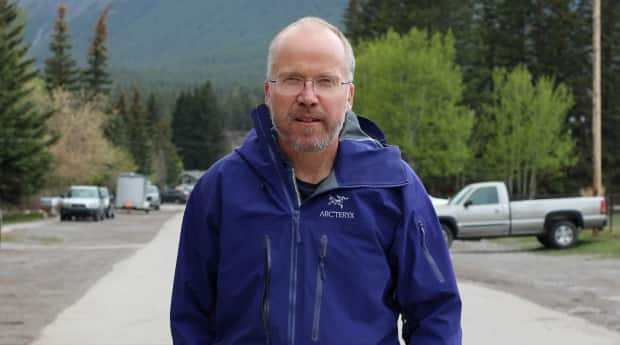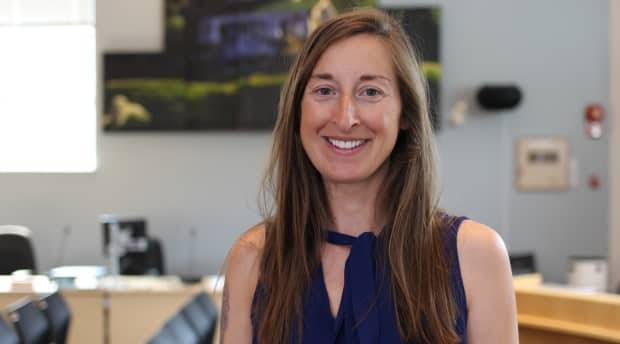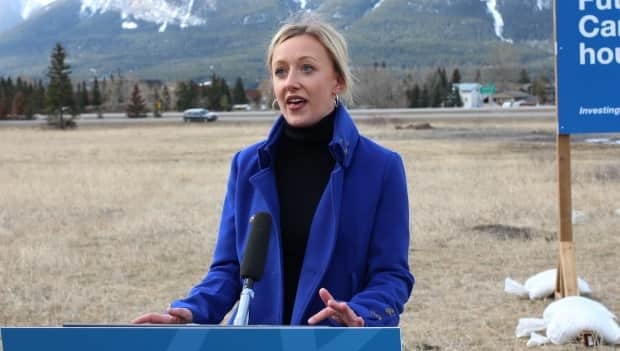Housing affordability is a top election issue in the Bow Valley. Here's what the parties are saying

For Matthew Simmonds, hiring staff can often feel like taking one step forward and two steps back.
Simmonds, who is controller of Henry's Electric Service in Banff, Alta., has hired 18 people so far this year.
The problem is, around 10 of them have had to leave the Bow Valley altogether, mostly due to trouble either finding or paying for housing. Another four are now in school.
"So we hired 18 and we're up maybe four," said Simmonds. "It's a long battle."
It's a battle that's become familiar to many business owners and workers in the Bow Valley.

While the region has always been pricey, Karsten Heuer says the affordability problem has lately reached a critical point.
Heuer, president of the civic action group Bow Valley Engage, says the kinds of people who keep a community running — from doctors to teachers to volunteer coaches — are now finding themselves priced out of the region. The problem is so widespread now that Heuer believes it could prove to be an important election issue for the riding of Banff-Kananaskis.
"Everybody is either struggling themselves or they know somebody who's struggling," said Heuer, who has lived in the region for 30 years.
Political scientist Lori Williams agrees.
While housing isn't the only issue for this riding, it's one that local candidates have been putting a spotlight on. Both the UCP and the NDP, for example, have made announcements in Canmore in the last month touting their plans to build more affordable housing in the region.
In a competitive riding, Williams said that's no coincidence.
"I think it's quite clear that both parties have identified that housing is an important enough issue to enough of the people in this constituency that responding to that concern could win over undecided voters," said Williams, a political science professor at Mount Royal University.
"Perhaps they think this is one [issue] that they can win at."
What municipalities want

The Banff and Canmore mayors say housing is high on their list of priorities this election.
They'd like to see whoever forms the next government commit more cash to affordable housing, with Banff Mayor Corrie DiManno pointing to her town's Ti'nu rental complex as one example of how this funding makes a difference.
The complex, which was funded in part by a provincial grant, opened in 2018. Rent from the complex has been going into a community housing reserve that can, in turn, fund future local housing projects.
"Provincial funding was absolutely instrumental," said DiManno.
The two Bow Valley mayors also want their communities — and the Municipality of Jasper — to be recognized as tourism-based communities, eligible for funding to offset the money they spend on tourist infrastructure. Those funds could, in turn, be reinvested to create more workforce housing.
In Canmore, Mayor Sean Krausert would also like to see changes to policy, such as allowing inclusionary zoning. That's a policy stipulating that new developments in a community have to include a certain number of below-market units.
Party promises
So, what do the parties plan to do, if elected, to build more affordable housing in the Bow Valley?
Here's what five of them say.
UCP

About two weeks before the writs dropped, then-minister of Seniors, Community and Social Services Jeremy Nixon made a stop in Canmore to announce plans to transfer 2.3 hectares of provincially-owned land to the Town of Canmore for affordable housing.
In a statement, the UCP later said it would follow through with capital dollars for the project once the Town of Canmore releases a development plan.
"We know that affordable housing is a top need, if not the top need, in the Bow Valley," said UCP candidate Miranda Rosin, who was then the riding's MLA, during the announcement.
"We need affordable housing in this community both to support our economy as well and to maintain labour force retention, but also just to build a strong community that can last generations."
Speaking at the event, Nixon said the land transfer was part of the UCP's plan to build 25,000 affordable housing units within a 10-year period.
NDP

If elected, the Alberta NDP says it plans to build 8,500 more affordable homes and provide rental assistance to 11,0000 more families within the next five years.
During an announcement in Canmore on May 3, the NDP said it would prioritize new housing for the Bow Valley, given the region's affordability crisis.
"Banff and Canmore continue to face one of the worst staffing shortages in Alberta, in part because of the lack of affordable housing," said Sarah Elmeligi, the NDP candidate for Banff-Kananaskis, during the announcement.
"That's bad for our economy. Even worse, we're losing youth that want to call the Bow Valley home, simply because they can't afford a home."
The NDP says its affordable housing plan would include a provincial investment of $1.5 billion.
Asked if it would commit to transferring the same 2.3 hectares of land to the Town of Canmore, the party said it would need to see details of the land transfer agreement to "understand the full scope and its viability."
Green Party
Green Party leader Jordan Wilkie says vacant homes, as well as homes that are used as short-term rentals, are among the drivers of the housing shortage in the Bow Valley.
If elected, the Green Party — whose candidate in the riding is Regan Boychuk — would work with municipalities to explore the possibility of new taxes on vacant homes and short-term rentals, Wilkie said.
"You can't just have all these spaces vacant and then think that you're going to have a thriving community," he said.
At a provincial level, Wilkie said his party would introduce a rent cap of 1.5 per cent.
Solidarity Movement of Alberta
The Solidarity Movement of Alberta, whose local candidate is Kyle Jubb, told CBC News the party would work with local organizations — including the Banff and Lake Louise Hospitality Association — to bring more housing to the region.
"Private industry needs to be better included in staff/affordable housing developments or redevelopments as partners," the party said in a statement.
It added that provincial incentives could be a way to encourage more businesses to build housing for their employees.
Alberta Liberal Party
While the Alberta Liberal Party is not running a candidate in Banff-Kananaskis, its leader, John Roggeveen, said his party is calling for short-term subsidies for housing affordability.
Long-term, Roggeveen said he wants to see a doubling of funds for the construction and maintenance of affordable housing.
"In addition, we support working with municipalities and developers to fast-track the development of more housing projects," he said in a statement.
"In doing so, there should be a focus on housing for low- and middle-income Albertans and in places that are most in need, like the Bow Valley."


